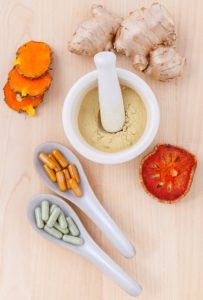
Ask for Small Doses
Tell your doctor that you are worried about the risk of addiction down the road, and ask if it would be possible to receive small, frequent prescriptions. Possessing only a small amount at a time with no excess removes much of the temptation and possibility for misuse. You will want to ensure that you have just enough medication to last until the next refill, meaning you are far less likely to take more than you need.
Have a Trusted Loved One Hold Your Medication
If you simply do not trust yourself enough to stay on track with your dosage, have a spouse or a trusted loved one keep the medication in an undisclosed location that you’re not likely to find. They will need to accept the job of dispensing the proper dosage, keeping track of when you are allowed your next dose.
Having someone you trust dispense your pain medication can prevent addiction, overdose, and unintentional mixing of substances. However, it is important that you are upfront with your loved one, fully disclosing the responsibility of their task.
Seek Alternative Treatments
For some chronic pain, it is possible to remove pharmaceuticals from the equation. Instead, you may want to test some up and coming alternative methods for pain management. A few popular options are exercise, reconfigured diet, and herbal remedies.
Yoga is an ideal way to start using exercise to treat chronic pain. It focuses on both strength and flexibility for the entire body while including the added benefit of meditative practice. Exercise can work against chronic pain by strengthening muscles and joints while aiding the nervous system in relaxing, thereby preventing flare-ups.
Diet also has a huge role to play in pain management. Inflammation is often the cause of chronic pain, meaning by incorporating more anti-inflammatory foods, you can reduce your pain. A few examples of these foods might be salmon, dark, leafy greens, bright peppers, and almonds.
Herbal remedies are also rising in popular treatment plans. Some herbs are a great, non-addictive way to reduce inflammation and dull pain. Some options might be turmeric, ginger, and Holy Basil tea, all readily available at the local grocery store.
Preventing addiction in those with chronic pain can be difficult, particularly if the chronic pain is not treatable with alternative options. If possible, weaning yourself from the pharmaceuticals is the best way to avoid addiction. However, when that is not a possibility, reach out to loved ones. Preventing addiction on your own can be difficult and having your loved ones nearby and aware of your situation is the best way to keep yourself honest. Also, keep in mind that addiction is not a guaranteed outcome. Plenty of people around the world take these medications on a long-term basis to treat their pain without it impacting their daily life. Though pain is not a sure-fire path to addiction, you should still be aware of and take steps to minimize your risks.
Jennifer McGregor is a pre-med student at the University of Michigan. She helped create PublicHealthLibrary.org with a friend as part of a class project. With it, she hopes to provide access to trustworthy health and medical resources. Contact: jmcgreg@publichealthlibrary.org







It is a good idea to have a trusted loved one hold your medication. I know that a lot of people can feel reservations about taking pain-killers, but it is important to get the relief that you need. If a loved one were in charge of your pills, I can see a lot more people getting the help that they need. Thank you for all of the applicable tips!
Chiropractic care has a proven track record in the care and prevention of chronic pain conditions for over 100 years, an anti inflammatory diet as well as your other non drug recommendations also are extremely valid and helpful. These alternatives are now mainstream treatment choices before the use of any opoids and many times prior to any other intervention for back and neck pain with and without radiculopathy. And by all means leave surgery for a last resort. For more info contact the American chiropractic association and or the foundation for chiropractic education and research